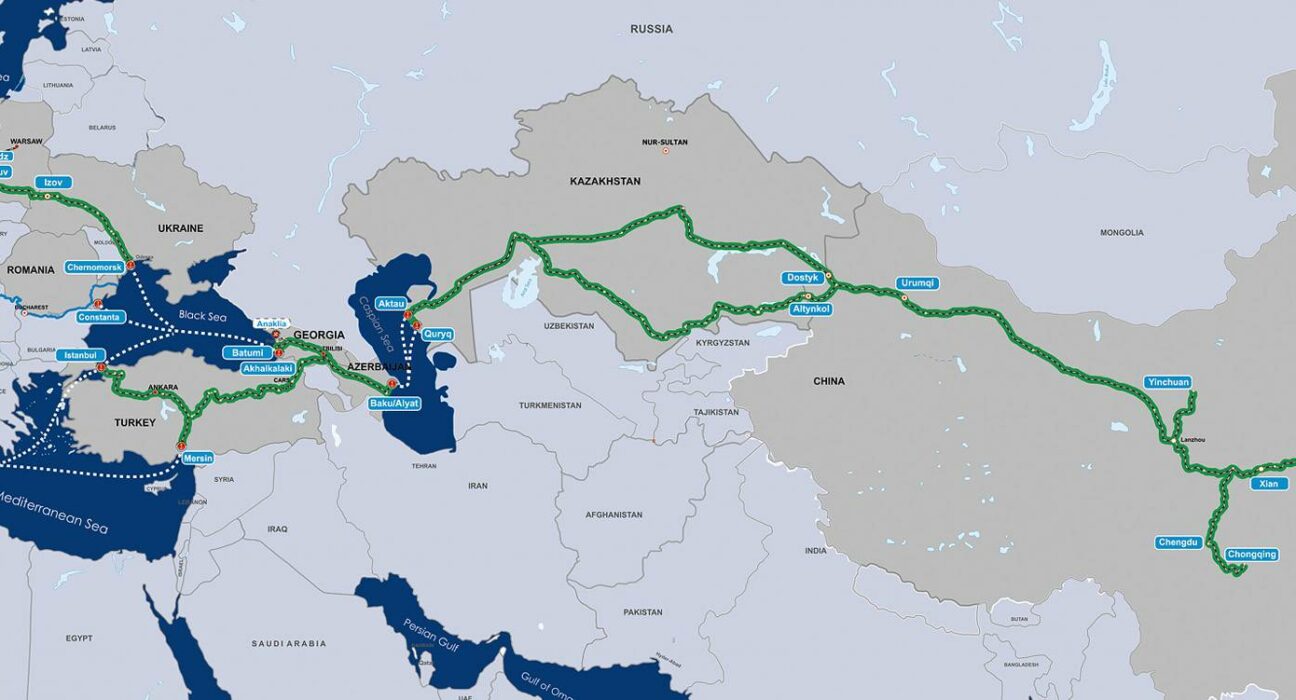A caravan of 26 trucks has been transported across the Caspian Sea from the Kazakh port of Kuryk to the port of Baku by a ferry of the Azerbaijani shipping company ASCO. The trucks were loaded onto the ferry in Kuryk on July 3, Eurasia Today reported.
The caravan will continue its journey through Georgia and Turkey to Europe, marking an important step in the development of the Trans-Caspian International Transport Route (TITR), also known as the Middle Corridor.
A test transit transportation of goods from China to Europe along the Middle Corridor took place in May 2024, when the first three trucks weighing 80 tons were sent along the China-Kazakhstan-Azerbaijan-Georgia route.
The Trans-Caspian International Transport Route connects China and Central Asian states with Europe through the Caspian Sea, the South Caucasus, and Turkey.
The Middle Corridor, which is approximately 11,000 kilometers long, is a strategically important transport route that provides an alternative route for freight transport, reducing dependence on traditional routes through Russia and ensuring faster and safer delivery of goods.
The throughput capacity of TITR is planned to be significantly increased: from 6 to 10 million tons of cargo by 2025. This increase requires improving infrastructure and logistics solutions along the entire route, which will significantly reduce the time and cost of cargo delivery.
This project is of great importance to all parties involved. Kazakhstan, Azerbaijan, Georgia, and Turkey are working together to improve their transport and logistics capabilities.
China, in turn, receives a reliable and efficient route to export its goods to Europe.
Transporting goods along the Middle Corridor is also important for Europe, which will receive goods from China and other Asian countries more quickly and efficiently.
This helps to diversify supplies and reduce dependence on traditional routes, which is especially important in the context of current geopolitical challenges.
